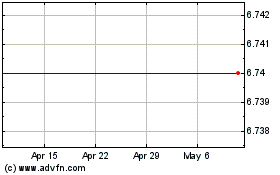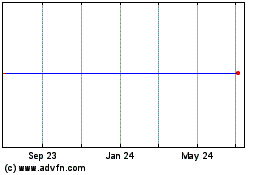US Airlines Find The Climate In Washington Chilly
January 08 2010 - 11:08AM
Dow Jones News
U.S. airlines are finding a chillier climate in Washington,
after a series of moves by the Obama administration that they say
cater to consumer groups and organized labor but could hurt the
industry.
The Transportation Department announced last month it would
start fining airlines up to millions of dollars for keeping
passengers on a runway for longer than three hours. The rules are
part of a broader regulatory crackdown that's also taking aim at
how airlines advertise fares and charge for baggage, and come as
regulators move to overhaul standards for the hiring and training
of pilots.
Meanwhile, the Obama administration has twice rebuffed industry
requests for economic-stimulus funds to upgrade the nation's
air-traffic management system. And after the Federal Aviation
Administration signed a deal with the National Air Traffic
Controllers Association that will elevate the union's influence on
aviation policy, the industry views the administration as looking
the other way as a government agency proceeds with a rule to make
it easier for airline employees to organize.
Airlines and industry observers warn that the new tarmac rules
will ultimately hurt carriers and consumers by causing more
cancellations and delays. And they question whether the recent
moves are a knee-jerk reaction to a few highly publicized incidents
and political considerations rather than a genuine effort to
improve industry conditions.
"It's populism," Gordon Bethune, a former Continental Airlines
Inc. (CAL) chief executive, said of the tarmac-delay penalties. "It
sounds good to the public. It sounds like, 'we're rough and tough
and doing something.' "
But, Bethune added, "It's going to come back to haunt them."
Airline consultant Mike Boyd said the tarmac rules will lead to
more delays and are emblematic of a broader problem in
Washington.
"It's consistent with the lack of understanding, it's consistent
with the lack of hard solutions" that characterized previous
administrations when it came to the airline industry, Boyd
said.
DOT officials said the new regulations are designed to address
long-standing problems and disputed that they will lead to a
significant increase in cancellations.
"It is our job to ensure that all airlines treat customers
fairly and respect their rights," said Bob Rivkin, the DOT's
general counsel.
Consumer groups have applauded the administration's efforts
after years of unsuccessfully lobbying for a passengers' "bill of
rights."
A public draft of the tarmac rules required that airlines
produce contingency plans to prevent lengthy delays, but the
three-hour limit didn't surface until the final rule was announced
in late December, taking some industry officials by surprise.
Rivkin said the department made it clear in the proposal that a
time limit was coming and sought industry comment during the
rule-making process.
The DOT previously had authority to fine airlines for tarmac
delays but seldom used it. That changed in November when the agency
fined Continental Airlines Inc. (CAL) and ExpressJet Holdings Inc.
(XJT) $50,000 each, and levied a $75,000 fine against Mesaba
Airlines. The fine stemmed from an August incident in which 47
passengers on a plane were stranded nearly six hours overnight at
the airport in Rochester, Minn.
David Castelveter, a spokesman for the Air Transport
Association, the industry's largest trade group, noted lengthy
tarmac delays are on the decline and constitute a small fraction of
all flights.
With the new rules, "the carriers are not going to risk the
fines, and those flights that cancel might otherwise have flown,"
Castelveter said. "We're going to have to figure out how to reduce,
to what extent we can, those cancellations."
Meanwhile, the White House appointed a former flight attendant
union leader to serve on the National Mediation Board, shifting the
board's balance. Then, the board in November moved to make it
easier for thousands of airline and railway workers to unionize
under the Railway Labor Act by seeking to throw out a 75-year-old
election rule.
The airline industry has said that Congress, not the NMB, has
authority to overhaul the rule.
A White House spokesman didn't return an email this week seeking
comment.
"There's a lot of concern that their lack of weighing in is a
silent nod that we're going to allow this to happen," said an
airline-industry official who spoke on the condition of
anonymity.
-By Josh Mitchell, Dow Jones Newswires; 202-862-6637;
joshua.mitchell@dowjones.com
Expressjet (NYSE:XJT)
Historical Stock Chart
From Mar 2024 to Apr 2024

Expressjet (NYSE:XJT)
Historical Stock Chart
From Apr 2023 to Apr 2024
